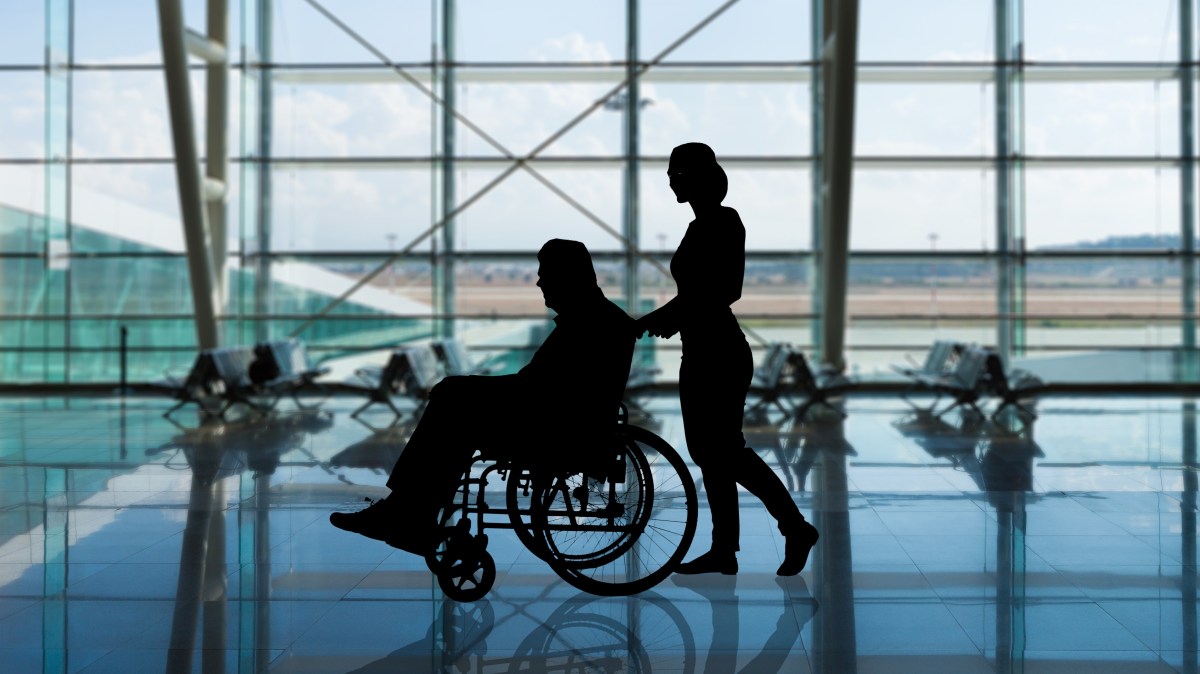Disabled air travellers continue to face unacceptable levels of discrimination and safety risks, highlighting a critical need for systemic reform in the UK aviation industry. This is according to disability advocate Sophie Morgan, whose personal experiences and subsequent campaigning have brought the issue to the forefront of national debate.
Morgan's ordeal began twenty years ago at Gatwick Airport, where her wheelchair, essential to her independence, was misplaced by ground handlers. This incident, far from being an isolated case, exemplifies the persistent challenges faced by disabled flyers. Last year, her £5,000 wheelchair was damaged during a British Airways flight â a sadly common occurrence for wheelchair users. This prompted Morgan to launch the Rights on Flights campaign, aiming to secure equitable treatment for all air travellers.
The campaign's efforts have included meetings with high-profile figures such as Sir Keir Starmer and President Biden, alongside airline representatives from British Airways and Virgin Atlantic. Significantly, Morgan has been appointed to the UK Department for Transport's new Aviation Accessibility Task and Finish Group, led by Baroness Grey-Thompson. This appointment follows the release of Morgan's Channel 4 documentary, *Sophie Morganâs Fight to Fly*, which highlighted the widespread issues faced by disabled travellers, including damaged or lost mobility devices, inadequate support, and a lack of appropriate compensation.
The documentary sparked urgent discussions about aviation accessibility, leading to the establishment of the task group. However, Morgan expresses concern that the group's efforts may not go far enough and criticises the fact that disabled individuals are forced to campaign for basic accessibility rights. Rights on Flights advocates for significant systematic changes, including improved staff training on disability assistance, accessible equipment design, and legislative changes to enhance passenger protection.
The charity Scope echoes these concerns, calling for airlines and airports to face financial penalties for failing to provide adequate assistance or preventing damage to mobility equipment. Their research reveals that a third of disabled people in the UK who have flown in the past five years have lodged accessibility-related complaints. Alarmingly, the number of disabled individuals choosing to avoid air travel altogether is increasing.
To address the shortcomings of existing legislation, Rights on Flights drafted the Assisted Air Travel Act with aviation experts and lawyers. This proposed act seeks to empower regulators, remove compensation caps, introduce guidelines for companion tickets, mandate disabled-led training for airport and airline staff, and promote innovative solutions such as the Air4All in-flight wheelchair system.
The task group faces a significant challenge in addressing the multitude of accessibility issues, ranging from the booking process and airport navigation to boarding procedures and the handling of mobility devices. With a limited timeframe of eight months, the urgency of the situation is paramount.
Morgan highlights the government and industry's awareness of the existing failings, citing declining passenger satisfaction reported by the Civil Aviation Authority and high-profile incidents such as BBC journalist Frank Gardner's experience on a Lot Polish Airlines flight and a fatal accident at Gatwick Airport in 2022. She argues that these are not minor issues but serious failings that undermine the right to safe and dignified air travel.
By drawing parallels with the situation in the United States, where the Air Carrier Access Act has led to significant improvements, Morgan emphasises the potential for transformative change through robust legislation. The recent $50 million (£39.5 million) fine levied against American Airlines for accessibility violations serves as a powerful example of the impact of effective enforcement. Morganâs recent relocation to the US underscores the stark difference in accessibility between the two countries.
The UK government now has an opportunity to implement similar reforms. While the task group can catalyse positive change, concrete action and enforceable regulations are essential to ensure genuine accessibility in UK aviation. Ultimately, Morgan calls for a complete overhaul of the system, prioritising the dignity and safety of disabled travellers, ensuring that air travel is truly inclusive for all.
Article
Business

Air Travel Accessibility: UK Must Learn from US Failures

